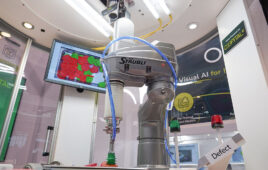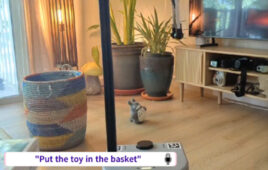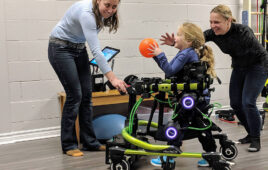|
Listen to this article
|
AMP will be putting its technology to work in another facility owned by Recycling and Disposal Solutions. (RDS). RDS will use the AMP ONE sortation robot at a site in Portsmouth, Virginia to extract mixed recyclables and organic materials from municipal solid waste (MSW) for further processing.
“At RDS, we’ve been early and enthusiastic adopters of advanced technologies to increase recovery and landfill diversion, drive down processing costs for local governments, and generate data for continuous facility improvement,” said Joe Benedetto, president of RDS. “AMP delivers best-in-class sorting solutions, and it was a natural fit to partner on this project and pioneer an economical way of capturing the value in our waste, especially as local communities close their recycling programs due to increasing costs.”
With the system, RDS’ facility currently processes 150 tons per day of local MSW with over 90% uptime. AMP says it designed AMP ONE to be co-located with landfills and transfer stations. The AMP ONE system separates bagged trash into its component parts of mixed recyclables, organics, and residue.
AMP brings extra value to MSW processing
MSW consists of everyday items we throw away, whether that be product packaging, clothing, food scraps, bottles, and more. According to Statista, the U.S. alone generates around 292 million tons of MSW every year. Much of this waste could be recycled, which is where robotic sorters come in.
“The economic and environmental opportunity in extracting value from the municipal solid waste stream is massive, and innovative sortation is key to unlocking this market,” said Matanya Horowitz, AMP founder and CEO. “To move the industry forward, we’ve designed technology that’s resilient to contamination and can more easily go after dirtier material streams. We see the success of the facility in Portsmouth as a blueprint for other municipalities looking to extend the life of their landfills and reach ambitious diversion targets. Given that recycling rates have been stagnant over the last decade, this presents a new opportunity to expand recycling—one that works for existing waste infrastructure assets.”
Equipped with AMP’s technology, RDS says its facility is capable of diverting more than 60% of landfill-bound material when paired with organics management and mixed recyclables sorting systems. These systems can be incorporated into a project by AMP or built separately. The company says MDW diversion extends the lift of landfills, reduces their environmental impact, and keeps disposal costs low.
AMP says its AI platform can be expanded to all types of material streams. It has a diverse set of sortation technology applications all powered by its platform, including its AMP Jet. AMP Jet can adjust to design challenges and enable new recycling and diversion pathways.
In 2023, RDS completed a new 33,000-square-foot building at its existing site in Portsmouth, which has provided local recycling services since 2005. RDS installed an AMP ONE system and began processing MSW in the facility in late 2023. The company is also using AMP technology in its Pitt County Recycling Center in Greenville, N.C. There, the system processes approximately 10,000 tons of single-stream and commercial recycling annually at the facility.
AMP rebrands to reflect extended product portfolio
Louisville, Colo.-based AMP was founded nearly a decade ago to prove that AI, machine learning, and robotics can transform recycling. Since then, the company has deployed hundreds of automated sorting systems across the U.S., Canada, Europe, and Japan.
In February 2024, it dropped the “robotics” from its name. AMP said it plans to focus on creating results for its customers, whether that involves robotics or not.
In recent years, AMP has been expanding its product portfolio to include systems for material characterization, film removal and recovery, and compact spaces in materials recovery facilities. All of these technologies have been enabled by AI, according to the company.
Most recently, it launched a fully automated, facility-scale sortation system, called AMP ONE, for waste management customers such as RDS. The system integrates AMP’s sortation technology into custom or turnkey facilities. The company said it aims to deliver maximum resource recovery with minimal labor and cost.
AMP’s product portfolio includes vision systems for real-time and continuous material characterization, its Delta robotic arm for sortation, the Microjet air-jet sortation for in-stream quality control, and its Vac belt-mounted vacuum sortation for thin film removal.







Tell Us What You Think!